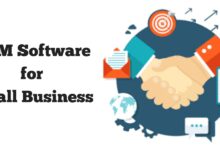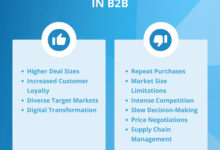Crm system for small business: 5 Best CRM Systems for Small Business to Skyrocket Growth
Running a small business? A smart CRM system for small business can be your secret weapon to boost sales, retain customers, and save time—without breaking the bank.
Why Every Small Business Needs a CRM System for Small Business

Small businesses often operate with limited resources, tight budgets, and stretched teams. In such a high-pressure environment, staying organized and maintaining strong customer relationships is critical. This is where a CRM (Customer Relationship Management) system for small business becomes indispensable. A well-chosen CRM doesn’t just store contact details—it transforms how you interact with customers, track sales, and grow your brand.
What Is a CRM System for Small Business?
A CRM system for small business is a software platform designed to help small companies manage interactions with current and potential customers. It centralizes customer data—like contact information, purchase history, communication logs, and support tickets—into one accessible location. This eliminates the chaos of scattered spreadsheets, sticky notes, and overflowing inboxes.
Unlike enterprise-level CRMs that are complex and expensive, small business CRMs are built for simplicity, affordability, and scalability. They often come with intuitive interfaces, mobile access, and modular features that grow with your business. Whether you’re a solopreneur or a team of ten, a CRM system for small business can streamline workflows and improve customer satisfaction.
Key Benefits of Using a CRM for Small BusinessesImproved Customer Relationships: With a complete view of each customer’s history, you can personalize communication and anticipate needs.Increased Sales Efficiency: Automate follow-ups, track leads, and manage pipelines to close deals faster.Better Data Organization: Say goodbye to lost emails and forgotten calls.All customer interactions are logged automatically.Enhanced Team Collaboration: Sales, marketing, and support teams can access the same data, reducing silos and miscommunication.Data-Driven Decisions: Generate reports on sales trends, customer behavior, and campaign performance to make smarter business choices.”A CRM isn’t just a tool—it’s a strategy.Small businesses that use CRM systems see up to 29% increase in sales productivity.” — Nucleus ResearchTop 5 CRM Systems for Small Business in 2024Choosing the right CRM system for small business can feel overwhelming..
There are dozens of options, each with different features, pricing, and learning curves.To help you cut through the noise, we’ve evaluated the top five CRM platforms based on usability, affordability, scalability, and customer support.These are the best CRM systems for small business owners who want powerful tools without complexity..
1. HubSpot CRM
HubSpot CRM is widely regarded as the best free CRM system for small business. It offers a robust set of features at no cost, making it ideal for startups and growing companies. The platform includes contact management, deal tracking, email integration, live chat, and basic automation.
One of HubSpot’s biggest strengths is its ecosystem. As your business grows, you can seamlessly upgrade to paid marketing, sales, and service hubs. The interface is clean and intuitive, with drag-and-drop pipelines and mobile app support. It integrates with over 1,000 apps, including Gmail, Outlook, Slack, and Shopify.
While the free version is feature-rich, advanced features like custom reporting, team permissions, and email scheduling require a paid plan. Still, for a CRM system for small business that scales with you, HubSpot is a top contender. Learn more at HubSpot.com.
2. Zoho CRM
Zoho CRM is a powerful, affordable CRM system for small business that offers deep customization and AI-powered insights. It’s especially popular among businesses that need automation and workflow management without high costs.
The platform includes lead scoring, sales forecasting, email tracking, and a virtual assistant named Zia that predicts deal closures and suggests next steps. Zoho CRM also supports multi-channel communication, including phone, email, social media, and live chat.
Pricing starts at just $14/user/month, and the free plan supports up to three users. It integrates with over 500 apps, including Google Workspace, QuickBooks, and Mailchimp. For small businesses looking for a balance between power and price, Zoho CRM is a standout choice. Visit Zoho CRM.
3. Salesforce Essentials
Salesforce is a giant in the CRM world, and its Essentials edition is tailored specifically for small businesses. This CRM system for small business offers a simplified version of the enterprise platform, with a focus on sales automation, contact management, and team collaboration.
Salesforce Essentials includes lead and opportunity tracking, email integration, activity logging, and basic reporting. It also supports mobile access and integrates with popular tools like Gmail, Outlook, and DocuSign. The interface is user-friendly, with a modern design and guided setup.
Priced at $25/user/month, it’s one of the more expensive options on this list—but you’re paying for reliability, scalability, and a vast ecosystem of apps via the Salesforce AppExchange. If you plan to grow rapidly, Salesforce Essentials provides a solid foundation. Explore Salesforce Essentials.
4. Freshsales (by Freshworks)
Freshsales is a modern CRM system for small business that emphasizes ease of use and AI-driven insights. It’s designed for sales teams that want to automate repetitive tasks and focus on closing deals.
The platform includes a visual deal pipeline, AI-based lead scoring, built-in phone and email, and activity capture. One standout feature is its timeline view, which shows all customer interactions in chronological order—perfect for quick onboarding and context-rich follow-ups.
Freshsales offers a free plan for up to 10 users, making it one of the most generous in the market. Paid plans start at $15/user/month and include advanced automation and reporting. It integrates with tools like Google Calendar, Slack, and Zapier. For small businesses that value speed and simplicity, Freshsales is a top pick. Check out Freshsales.
5. Insightly
Insightly is a CRM system for small business that blends customer relationship management with project management. This dual focus makes it ideal for service-based businesses, consultants, and agencies that manage client projects alongside sales.
The platform allows you to track leads, manage pipelines, and assign tasks—all within the same system. It supports workflow automation, contact segmentation, and email integration. The project management features include Gantt charts, task dependencies, and milestone tracking.
Insightly’s pricing starts at $29/user/month, which is on the higher end, but the added project functionality justifies the cost for many users. It integrates with Google Workspace, Microsoft 365, and QuickBooks. If your small business juggles client work and sales, Insightly offers a unified solution. Discover Insightly.
Key Features to Look for in a CRM System for Small Business
Not all CRM systems are created equal. When evaluating a CRM system for small business, focus on features that align with your goals, team size, and industry. Here are the most important capabilities to consider:
Contact and Lead Management
The core function of any CRM is managing contacts and leads. Look for a system that allows you to import, organize, and segment your contacts easily. Features like custom fields, tags, and lead scoring help prioritize high-value prospects.
crm system for small business – Crm system for small business menjadi aspek penting yang dibahas di sini.
A good CRM should automatically capture leads from forms, emails, and websites. It should also track lead sources so you can measure which channels bring the most conversions. For small businesses, the ability to merge duplicate contacts and clean data is crucial for maintaining accuracy.
Sales Pipeline and Deal Tracking
A visual sales pipeline helps you see where each deal stands—whether it’s a new lead, in negotiation, or ready to close. The best CRM systems for small business offer customizable stages, drag-and-drop functionality, and real-time updates.
Deal tracking should include fields for deal value, expected close date, and probability. This data feeds into forecasting reports, helping you predict revenue and plan resources. Automation rules can move deals through stages based on triggers like email opens or call completions.
Automation and Workflow Tools
Time is your most valuable asset as a small business owner. Automation saves hours by handling repetitive tasks like sending follow-up emails, assigning leads, or logging activities.
Look for a CRM that offers rule-based workflows. For example, when a lead downloads a brochure, the system can automatically add them to a nurture sequence, assign a sales rep, and schedule a follow-up call. These automations reduce human error and ensure consistency in customer engagement.
“Businesses that automate lead management see a 10% increase in revenue within 6-9 months.” — Salesforce State of Marketing Report
How to Choose the Right CRM System for Small Business
Selecting the right CRM system for small business isn’t just about features—it’s about fit. The best CRM for your neighbor’s bakery might not work for your digital marketing agency. Follow these steps to make a smart decision:
Assess Your Business Needs
Start by identifying your pain points. Are you losing leads? Struggling to follow up? Unable to track sales performance? List your top three challenges. Then, map them to CRM features. For example, if follow-ups are inconsistent, prioritize email automation and task reminders.
Consider your sales process. How many stages does a deal go through? How many team members are involved? A CRM should mirror your workflow, not force you to change it.
Consider Scalability and Integration
Choose a CRM system for small business that can grow with you. Will it support more users, additional features, or international expansion? Check if the vendor offers tiered plans that allow gradual upgrades.
Integration is equally important. Your CRM should connect seamlessly with tools you already use—like email, calendar, accounting software, or e-commerce platforms. APIs and pre-built integrations (via Zapier, for example) can save development time and reduce data silos.
Evaluate User Experience and Support
No matter how powerful a CRM is, it’s useless if your team won’t use it. A clunky interface leads to low adoption and wasted investment. Look for a system with an intuitive design, mobile access, and minimal learning curve.
Also, check the quality of customer support. Does the vendor offer live chat, phone support, or onboarding assistance? Are there video tutorials, knowledge bases, or community forums? Good support can make the difference between a smooth rollout and a failed implementation.
Common CRM Implementation Mistakes to Avoid
Even the best CRM system for small business can fail if implemented poorly. Many small businesses rush into setup without a clear plan, leading to frustration and abandonment. Avoid these common pitfalls:
Skipping Data Cleanup
Migrating messy, outdated, or duplicate data into a new CRM creates chaos. Before importing, clean your contact lists—remove invalid emails, standardize formats, and eliminate duplicates. Most CRMs offer data import tools, but they work best with structured, high-quality data.
Take the time to define your data fields and naming conventions. For example, decide how you’ll label job titles, company sizes, or lead sources. Consistency ensures everyone on your team understands the data.
Over-Customizing Too Soon
It’s tempting to tweak every field, workflow, and report during setup. But over-customization early on can lead to complexity and confusion. Start with the basics: contacts, deals, tasks, and emails. Use the CRM’s default settings to get familiar with the system.
Once your team is comfortable, gradually introduce custom fields, automation, and advanced reports. This phased approach improves adoption and reduces errors.
Ignoring User Training
Even the simplest CRM requires some training. Without it, team members may enter data incorrectly, miss notifications, or avoid using the system altogether. Schedule onboarding sessions, create quick-reference guides, and assign a CRM champion to answer questions.
Encourage feedback and adjust workflows based on user input. A CRM should serve your team, not the other way around.
How a CRM System for Small Business Boosts Sales and Retention
A CRM system for small business isn’t just a digital rolodex—it’s a growth engine. When used effectively, it can directly impact your bottom line by increasing sales and improving customer retention.
Accelerating the Sales Cycle
With a CRM, sales reps spend less time searching for information and more time selling. Automated reminders ensure no lead falls through the cracks. Email tracking shows when prospects open messages, allowing timely follow-ups.
CRM analytics reveal bottlenecks in your sales process. For example, if deals stall at the proposal stage, you can refine your pricing or presentation. By optimizing each stage, you shorten the sales cycle and increase conversion rates.
Personalizing Customer Experiences
Today’s customers expect personalized interactions. A CRM gives you the insights to deliver them. You can track purchase history, preferences, and past conversations to tailor your messaging.
crm system for small business – Crm system for small business menjadi aspek penting yang dibahas di sini.
For example, if a customer bought a winter coat last year, you can send them a spring jacket offer when the season changes. Personalization builds trust and increases the likelihood of repeat purchases.
Reducing Customer Churn
Retention is cheaper than acquisition. A CRM helps you identify at-risk customers—those who haven’t engaged in weeks or have unresolved support tickets. You can trigger retention campaigns, like special offers or check-in calls, to re-engage them.
Additionally, CRM data helps you understand why customers leave. Are they unhappy with service? Is pricing an issue? These insights guide improvements that boost loyalty.
Future Trends in CRM for Small Businesses
The CRM landscape is evolving fast, and small businesses can now access technologies once reserved for large enterprises. Staying ahead of trends ensures your CRM remains a competitive advantage.
AI and Predictive Analytics
Artificial intelligence is no longer science fiction. Modern CRM systems for small business use AI to predict which leads are most likely to convert, suggest the best time to call, and even draft email responses.
For example, HubSpot’s AI tools can generate personalized outreach messages based on a lead’s website behavior. Zoho’s Zia analyzes past deals to forecast future sales. These capabilities save time and improve decision-making.
Mobile-First CRM Solutions
With remote work and on-the-go sales, mobile access is essential. The best CRM systems for small business offer fully functional mobile apps that allow users to update records, log calls, and view pipelines from anywhere.
Future CRMs will prioritize mobile experiences, with voice commands, offline access, and real-time notifications. This empowers field sales teams and service providers to stay connected and productive.
Integration with Communication Platforms
CRMs are becoming central hubs that connect with communication tools like WhatsApp, SMS, and video conferencing. This allows businesses to engage customers on their preferred channels without switching apps.
For instance, a CRM can log a WhatsApp conversation as a customer activity, or schedule a Zoom call directly from a contact record. These integrations create a seamless customer experience.
What is the best CRM system for small business?
The best CRM system for small business depends on your needs. HubSpot CRM is ideal for those starting out and wanting a free, powerful option. Zoho CRM offers great value with automation and AI. Salesforce Essentials is best for businesses planning rapid growth. Freshsales excels in sales automation, while Insightly is perfect for project-based services.
Is a CRM worth it for a small business?
Absolutely. A CRM system for small business improves organization, boosts sales, and enhances customer relationships. Even solopreneurs benefit from tracking interactions and automating follow-ups. The return on investment is clear: better efficiency, higher conversion rates, and increased customer lifetime value.
Can I use a CRM for free?
Yes, several CRM systems for small business offer free plans. HubSpot CRM and Freshsales provide robust free versions with contact management, deal tracking, and basic automation. These are excellent for startups and small teams testing the waters before upgrading.
How long does it take to implement a CRM?
Implementation time varies. A simple CRM like HubSpot can be set up in a day. More complex systems with custom workflows may take 2–4 weeks. Key factors include data migration, team training, and integration setup. Starting small and scaling gradually reduces implementation time.
Do I need IT skills to use a CRM?
No. Most CRM systems for small business are designed for non-technical users. They feature drag-and-drop interfaces, guided setup wizards, and intuitive navigation. Vendors also provide tutorials, customer support, and onboarding resources to help you get started.
Choosing the right CRM system for small business is one of the smartest moves you can make. It brings order to chaos, empowers your team, and drives growth. Whether you pick HubSpot, Zoho, Salesforce, Freshsales, or Insightly, the key is to start, stay consistent, and use the data to make better decisions. The future of small business success is customer-centric—and a CRM is your roadmap to get there.
crm system for small business – Crm system for small business menjadi aspek penting yang dibahas di sini.
Further Reading:




